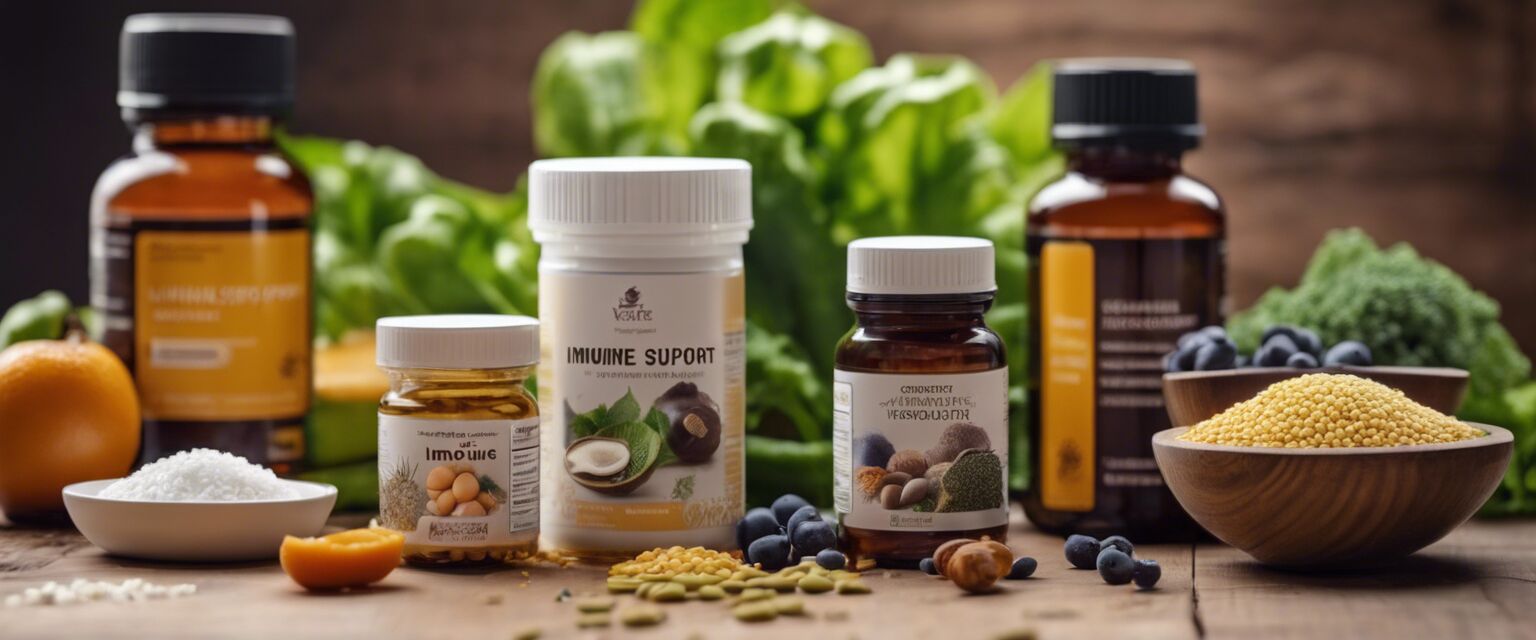
Scientific Research on Supplements
Key Takeaways
- Scientific research supports the effectiveness of several immune-boosting supplements.
- Different supplements work through various mechanisms to enhance immune health.
- Consistency and proper dosage are crucial for achieving desired results.
- Always consider a balanced diet alongside supplementation for overall health.
When it comes to supporting your immune system, the right supplements can play a significant role. A wealth of scientific studies has emerged examining the effectiveness of various immune-boosting supplements. In this article, we will explore the latest findings on these supplements, focusing on their benefits, how they work, and what the research says.
The role of immunity-boosting supplements
Immunity-boosting supplements can support the immune system's ability to function correctly. They come in numerous forms, including vitamins, minerals, herbal extracts, and probiotics. Each type has a unique action on the body, contributing to overall wellness.

1. Vitamins
Vitamins are essential for the immune system to operate at peak efficiency. Here are the most commonly studied vitamins:
| Vitamin | Key Findings |
|---|---|
| Vitamin C | May shorten the duration of colds and improve immune function. |
| Vitamin D | Supports innate immune responses and may reduce susceptibility to respiratory infections. |
| Vitamin E | Acts as an antioxidant and boosts immune function in the elderly. |
2. Minerals
Minerals are another vital component that can enhance immunity. A look at key minerals includes:
| Mineral | Key Findings |
|---|---|
| Zinc | Plays a crucial role in immune cell development and function. |
| Selenium | May help reduce the risk of infection and regulate immune responses. |
Pros of using supplements
- Targeted support for specific deficiencies.
- Convenient and easy to incorporate into daily routines.
- Can enhance overall well-being when combined with a healthy diet.
Cons of using supplements
- May not replace a balanced diet.
- Overconsumption can lead to adverse effects.
- Quality and potency vary between products.
Herbal Supplements
Herbal supplements have been used for centuries to promote health. Emerging research has highlighted several herbs with potential immune-boosting properties. Here are some notable herbs:
| Herb | Key Benefits | Research Findings |
|---|---|---|
| Echinacea | Supports immune function and may help with cold symptoms. | Some studies suggest it can reduce the severity and duration of colds. |
| Garlic | Supports cardiovascular health alongside immune support. | Linked to lower risk of colds and flu infections. |
| Ginger | May help reduce inflammation and fight infections. | Some research indicates it may enhance immune responses. |

Probiotics
Probiotics are live bacteria that support gut health, which can, in turn, influence immunity. Recent studies have shown:
| Probiotic Strain | Ideal Use | Research Findings |
|---|---|---|
| Lactobacillus | General gut health support. | Can help prevent gastrointestinal infections. |
| Bifidobacterium | Supports overall immunity. | Linked to improved immune responses. |
Superfoods for immune health
Incorporating superfoods, which are nutrient-rich foods, into your diet can further enhance immunity. Some noteworthy superfoods include:
- Spinach
- Blueberries
- Almonds
- Sweet potatoes
- Turmeric
To learn more about superfoods, visit our Superfoods section.
Dosage and consistency are key
The effectiveness of supplements largely depends on proper dosage and consistency. While there are general recommendations, individual needs may vary. Itâs essential to consult with a healthcare provider before starting any supplementation regime.
Conclusion
Scientific research into immune-boosting supplements reveals promising findings about their effectiveness. Whether through vitamins, minerals, herbal compounds, or probiotics, these supplements can play a role in supporting immune health. However, supplements should never replace a varied and balanced diet, and it is always advisable to seek medical advice tailored to your individual needs.
Tips for choosing the right supplements
- Look for reputable brands with third-party testing.
- Check for certifications like GMP (Good Manufacturing Practices).
- Read product reviews and scientific studies where available.
- Be cautious of megadoses; more isnât always better.

If you want to explore more about different categories of supplements, check out our sections on antioxidants, herbal supplements, mineral supplements, and vitamins.





